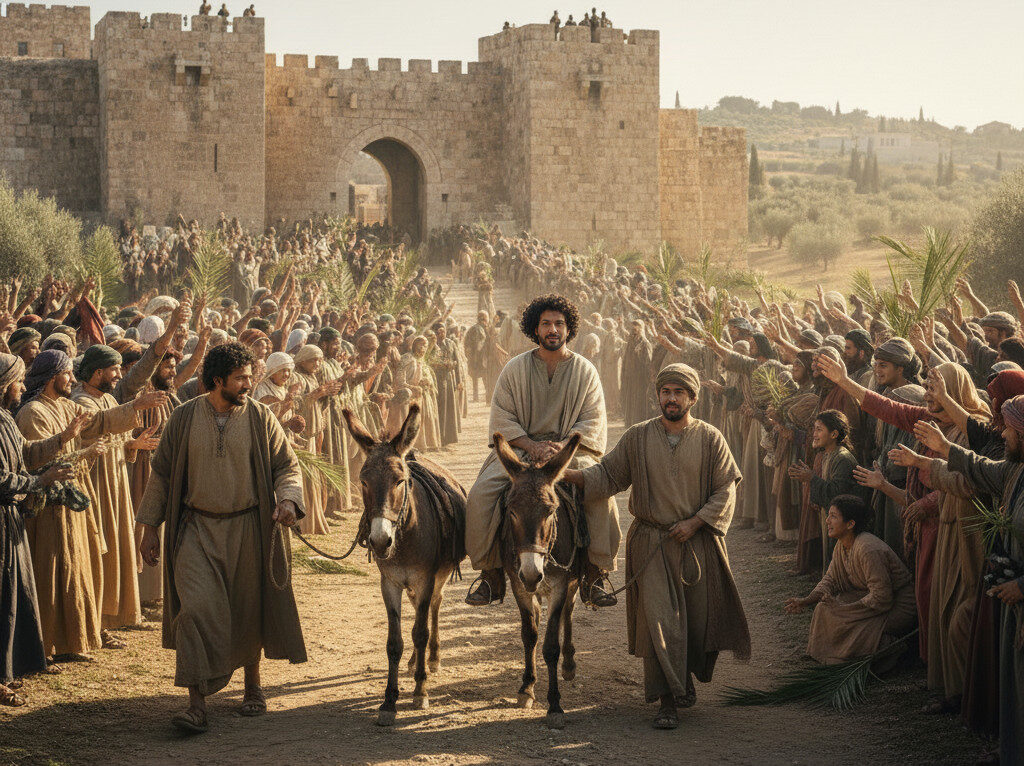Ezekiel 37:15-28 and Elements of God’s Future Promises to Israel
By Dr. Keith Kobelia / January 30, 2026
The Prophet Ezekiel was called to an unusual but important ministry to the captives of Judah in Babylon. Despite his unusual methods (e.g., symbolic acts) and extraordinary visions (e.g., Ezek...
Read More
Why the Promises to Israel Matter Today
By Dr. Daniel Brown / November 15, 2025
Fulfilled Messianic Prophecies from the Book of Zechariah
By Dr. Keith Kobelia / September 15, 2025
Among the most intriguing prophetic sections of the Bible are the prophecies of Zechariah which are contained in the book that bears his name. Zechariah is teeming with Messianic prophecies,...
Read More
The Virgin in Isaiah 7:14
By Dr. Timothy A. Little / July 1, 2025
INTRODUCTION According to the Gospel of Matthew, the virgin Mary was found to be with child of the Holy Spirit. Jesus the Messiah was miraculously conceived, and, several months later,...
Read More
1 Reply
{"slides_column":1,"slides_scroll":1,"dots":"true","arrows":"true","autoplay":"true","autoplay_interval":"5000","speed":"1200","lazyload":""}
The Rapture in 2 Thessalonians 2:1–10
Posted on by Dr. Myron J. Houghton
The Context
In verses one and two, Paul states: “Now we beseech you, brethren, by the coming of our Lord Jesus Christ, and by our gathering together unto him, That ye be not soon shaken in mind, or be troubled, neither by spirit, nor by word, nor by letter as from us, as that the day of Christ is at hand.” (All Bible quotations are from the King James Version.)
Several things may be said about these verses. (1) Paul is writing to the Thessalonian believers about the rapture.
What Happened to Keswick?
Posted on by Dr. Robert Delnay
Years ago a few Fundamentalists had occasion to identify with the Keswick movement, also known as the “deeper life,” or “victorious life.” Others have slurred the movement in somewhat the same way that New Evangelicals have slurred the Scofield Reference Bible. The point is worth some notice.
While the movement traces back to the perfectionist movements that in the 1860s produced Holiness, it went in a somewhat different direction. Credit seems to go to William Boardman, who in the 1860s was preaching a higher life, and to Pearsall Smith and his wife Hannah Whitehall Smith.
Doing Worship God’s Way
Posted on by Dr. Ralph G. Turk
Our faith is an internal faith. Contrary to our natural predispositions to focus on the external and evaluate everything by the visible, God focuses on our hearts. No wonder the supreme goal of the believer is to glorify God. This magnificent theme echoes and reechoes throughout Scripture. All other goals and aspirations, as vital as they are, simply serve God’s glory.
But how does one glorify God? He created man to have fellowship with Him (Col. 1:16), and we are His purchased possession (1 Cor.
Doing Church God’s Way
Posted on by Dr. Ralph G. Turk
Issues of church government continue to dominate much of the thinking and practice of contemporary churches. Misconceptions concerning roles of congregations, deacons, and pastors reduce churches to confusion, conflict, and inertia.
Several key questions arise that demand answers. Why do we need church leaders in the first place? Some argue that if Christ is truly Head of His Church, and if all believers are Spirit-controlled, organization is superfluous. Others believe that organization is death to a “spiritual” ministry.
But a biblically-defined government is mandated for the following reasons:
1.
Babel, Part 2
Posted on by Dr. John C. Whitcomb
Concluding the topic introduced in September’s issue, Dr. Whitcomb discusses God’s purpose for the division at Babel and His plan for its reversal.
Peleg, which means “division,” was the name which this particular descendant of Noah and Shem acquired by virtue of his presence at the scene of God’s judgment of the Tower of Babel (Gen. 10:25). Surely, loving parents would not have named their son “Peleg” at the time of his birth, anymore than Nabal (= “fool”), the husband of Abigail, would have received such a name at his birth (cf.
Captain Myles Standish: Separatist Pilgrim, or Roman Catholic Soldier of Fortune?
Posted on by Dr. David Beale
The Mayflower set sail from England in 1620 with 102 passengers1 (fifty men, twenty women, twenty-two boys, and ten girls).2 This number includes three crew members who were hired to remain permanently in Plymouth and two crew members hired to remain for one year. Not included in the number are Oceanus Hopkins (a boy born at sea) and Peregrine White (a boy born on the ship while it was anchored off Provincetown, Cape Cod)—making the actual number of “passengers” to be 104.
Babel, Part 1
Posted on by Dr. John C. Whitcomb
God’s judgment of the Tower of Babel was one of the greatest catastrophes in the history of the world. In one moment, a massive, highly complex building project, involving the entire human race, came to an end. Thousands of workers, linguistically unified and Satanically inspired, suddenly found themselves incapable of communicating with each other. Overwhelmed by fear and frustration, each worker took his family and moved away from the others. Mankind has never recovered.
But what really happened, and why? For centuries, Bible students have wondered about the following three statements:
• “Come, let us build for ourselves .
The Inhabitants of the Millennium and the Timing of the Rapture, Part 1
Posted on by Dr. John Hartog, III
Introduction
Pretribulational theologians contend that the rapture of the church is the next event on the eschatological calendar and that it will occur before the tribulation (also known as Daniel’s seventieth week). Pretribulational theologians also assert that the rapture is imminent, since no prophetic event need take place before the rapture can occur. Additionally, they affirm that Christ’s return for the church at the rapture will be separated from His second coming to the earth by the tribulation period. The doctrinal statement of Faith Baptist Theological Seminary is pretribulational.1
Posttribulational theologians contend that the rapture will take place at the end of the tribulation in conjunction with Christ’s return to the earth.
The Inhabitants of the Millennium and the Timing of the Rapture, Part 2
Posted on by Dr. John Hartog, III
Summation of the previous article
The previous issue of the Faith Pulpit established six points regarding the inhabitants of the millennium and the timing of the rapture. First, at the rapture every dead believer “in Christ” will be resurrected and every living believer will be “caught up” to the clouds (1 Thessalonians 4:17). Second, every participant in the rapture will receive a glorified, resurrection body. Third, those with glorified bodies cannot die, nor can they procreate. Fourth, people with unglorified bodies, bodies capable of death and procreation, will inhabit the millennium.
My Swan Song
Posted on by Dr. Arthur Walton
What does one say when one is about to depart from the institution that he has loved and served for 41 years? Is there a Scriptural text that deals with that subject? Yes, there are several. In the O.T., Jacob, Moses, Joshua, and David each gave a farewell address. In the N.T., Peter and Paul both wrote of their impending death in their final epistles. One’s final message is sometimes called a “swan song,” a term based on an ancient belief that the swan knew the hour of its death and announced it with a great cry or sweet song.



